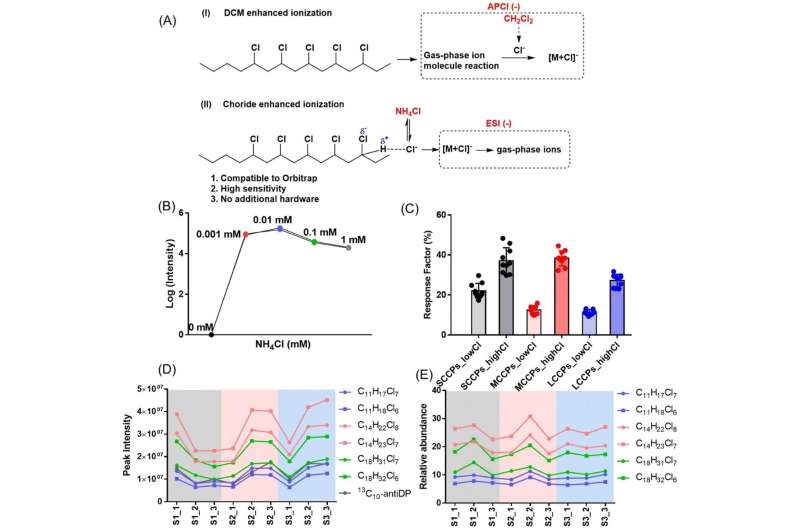Cancer-causing chemicals detected in toys and headphones

Cancer-causing chlorinated paraffins are still used in a wide range of everyday products sold in North America, despite their known health harm and being banned in Canada for a decade, according to a new study in Environmental Science: Processes & Impacts. The researchers detected short-chain chlorinated paraffins in more than 85% of products tested, including headphones, plastic toys, clothing, personal care products, and indoor paints purchased in Canada.
“We were astonished to find chlorinated paraffins in these types of products. Any parent would shudder at the thought of their baby chewing on a toy filled with cancer-causing chemicals,” said co-author Hui Peng, an Assistant Professor of Chemistry at the University of Toronto. “We need to protect our children and the wider public from these harmful substances.”
Short-chain chlorinated paraffins cause cancer in laboratory rats and mice—specifically targeting the liver, thyroid, and kidney. Though there are no human studies, the International Agency for Research on Cancer classifies them as possible human carcinogens. They also build up in our bodies, food webs, and environment.
In 2012, the Government of Canada determined that “all chlorinated paraffins are considered harmful with respect to human health,” and banned their manufacture, new use, and import. In 2017, short-chain chlorinated paraffins were listed for elimination under the Stockholm Convention on Persistent Organic Pollutants.
Nonetheless, their total global production is huge—more than 1 million tons per year—and is increasing. These toxic chemicals are used in everyday products as flame retardants, plasticizers and lubricants. Until now, many of their specific uses in products were not known to scientists and the public.
The highest concentrations of chlorinated paraffins in this study were detected in headphones and computer wires. The next highest concentrations were in toys and toy packaging. These uses can lead to human exposure through direct hand contact, mouthing of products by young children, and through contaminated dust making its way from hands to mouths.
Since the tested products were largely manufactured for an international market, chlorinated paraffins are likely also found in similar products in the U.S., Europe, and beyond.
“Chlorinated paraffins are very harmful and widespread in everyday products, but they are flying under the radar,” said co-author Arlene Blum, executive director of the Green Science Policy Institute. “Many of their uses are unnecessary and should be stopped immediately for healthier people and ecosystems.”
More information:
Steven Kutarna et al, Widespread presence of chlorinated paraffins in consumer products, Environmental Science: Processes & Impacts (2023). DOI: 10.1039/D2EM00494A
Provided by
Green Science Policy Institute
Citation:
Cancer-causing chemicals detected in toys and headphones (2023, April 11)
retrieved 11 April 2023
from https://phys.org/news/2023-04-cancer-causing-chemicals-toys-headphones.html
This document is subject to copyright. Apart from any fair dealing for the purpose of private study or research, no
part may be reproduced without the written permission. The content is provided for information purposes only.
For all the latest Science News Click Here
For the latest news and updates, follow us on Google News.

